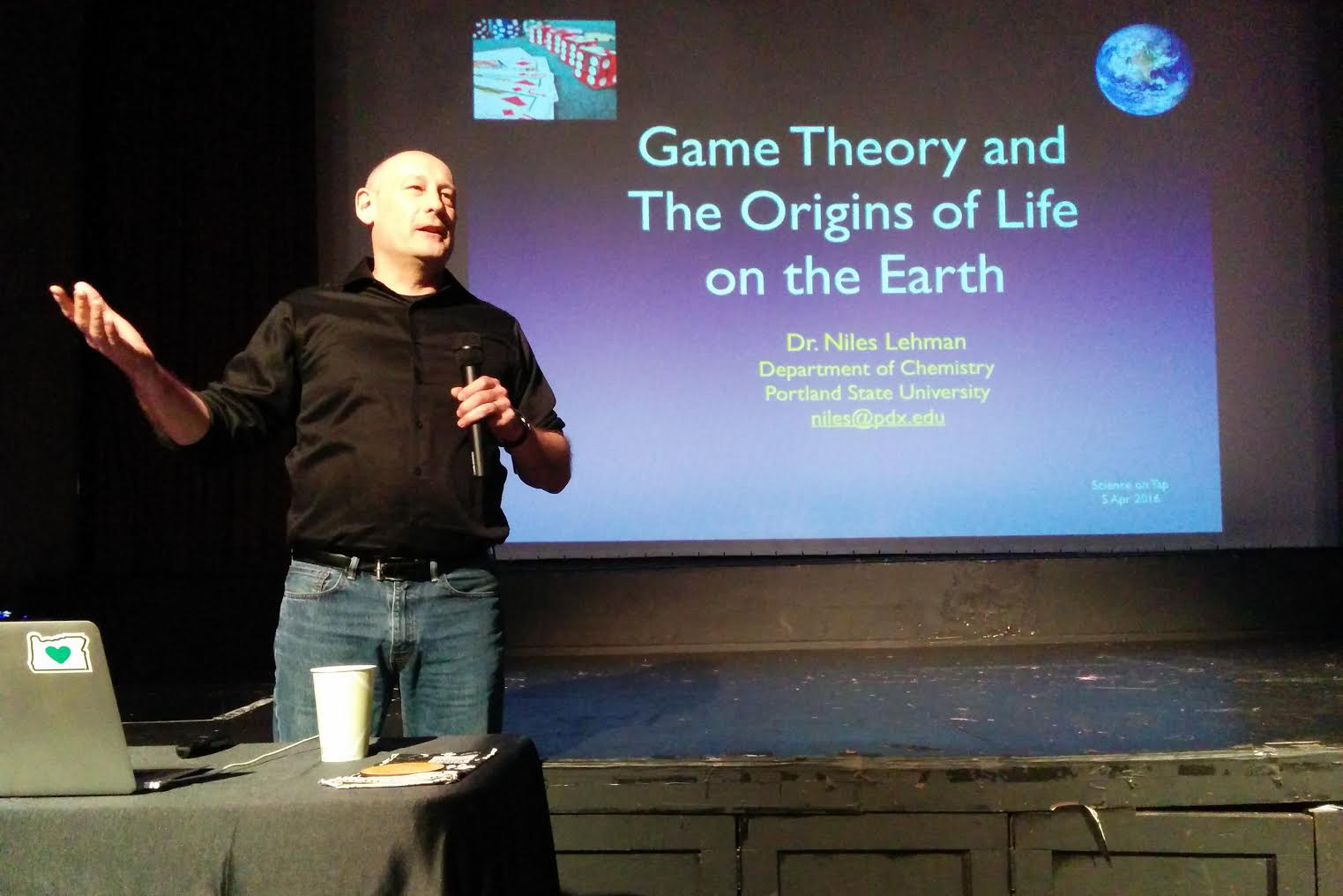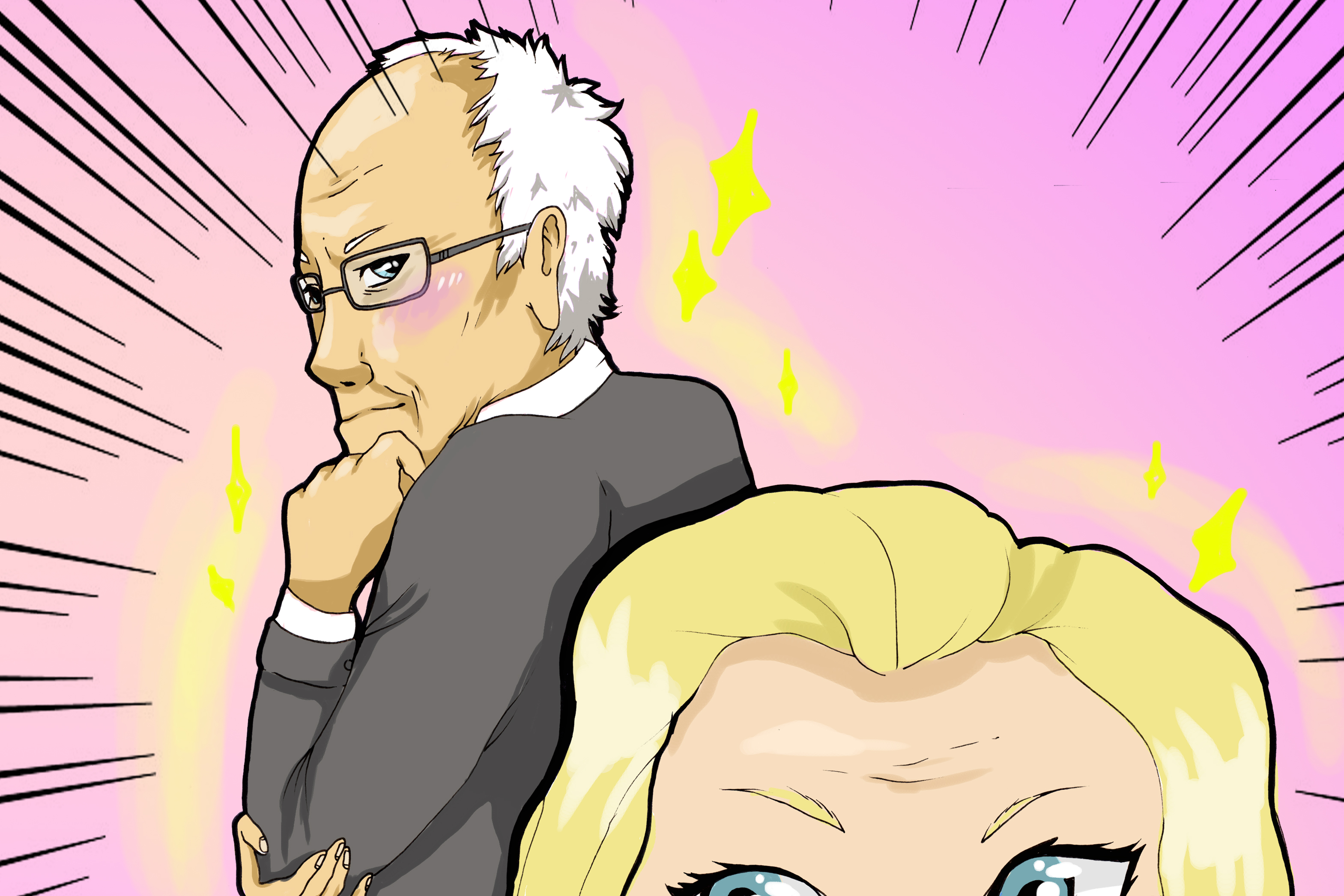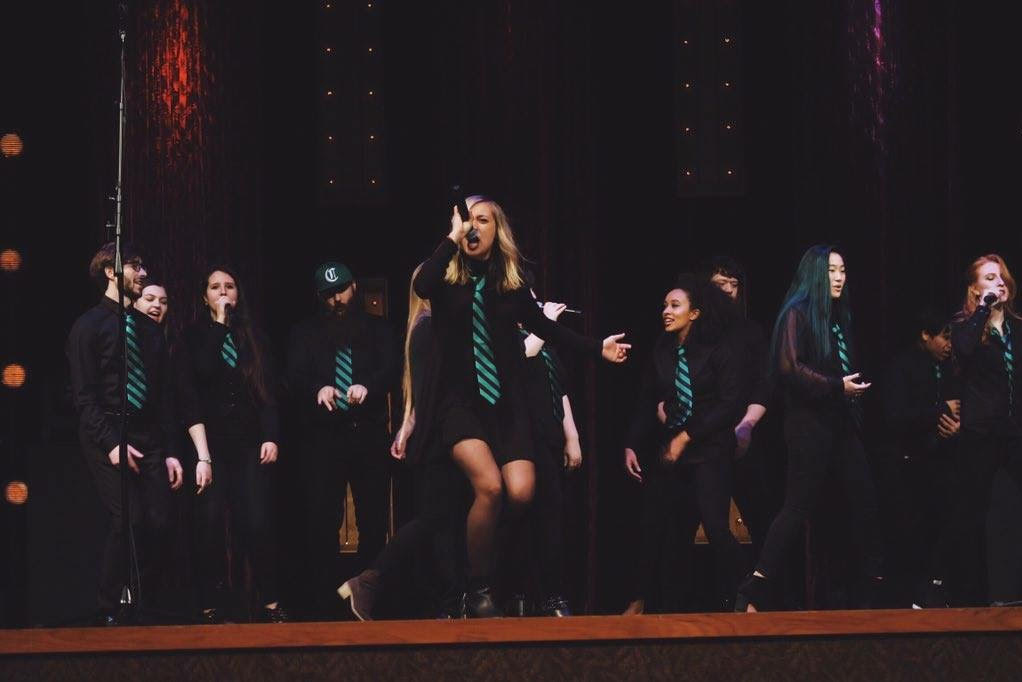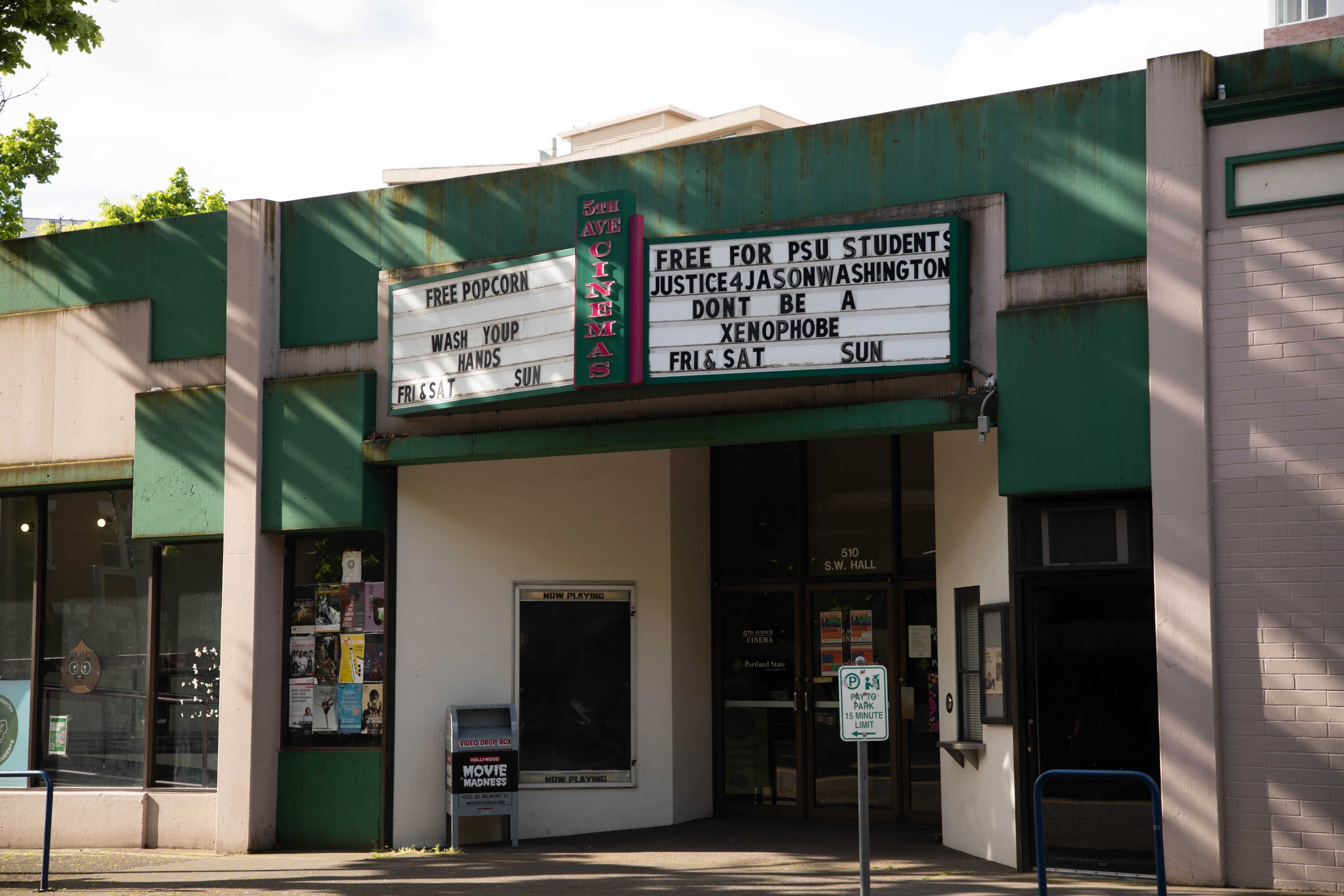Portland State’s professor of chemistry Dr. Niles Lehman was the featured speaker of Science on Tap, a regularly hosted science lecture series at the Clinton Street Theater. The title of his April 5 lecture was “Game Theory, Cooperation, and the Origins of Life.”
“I enjoy bringing science to the general public in a fun and relaxed atmosphere, which these forums all have been!” Lehman said. “It’s great to have people come when they are interested, drink and eat, and enjoy some science without having any heavy responsibilities looming (such as degrees or tests).”
Amanda Thomas, the sole organizer of Via Productions and host of Science on Tap, began the monthly lecture series in September 2014. However, she’s run about 300 of these events all over Oregon and in Vancouver since 2006, starting with Science Pub for the Oregon Museum of Science and Industry.
She originally got the idea from reading about new science cafes that were popping up all over the country. “I decided that Portland needed one too, and the rest is history,” Thomas said.
Thomas finds most of her speakers through word of mouth and suggestions from the audience, and she makes an effort to make at least half of them women. Another priority when choosing a topic is whether the person is an engaging speaker.
“If the person is passionate about her/his work and can communicate well with the public, then even seemingly banal science topics can be fascinating and fun,” Thomas said.
Thomas has worked with Lehman since the very beginning, and he has spoken at several of her events over the years.
“He’s a great science communicator and a really nice guy,” Thomas said. The audience seemed to agree, judging by the frequent rounds of laughter.
Rachel Powers is a creative writing MFA student at PSU who thoroughly enjoyed the event. “I thought Lehman was very entertaining and thought-provoking,” Powers said. “It’s fun to see scientists with a sense of humor!”
Lehman started the event with an experiment, a game. Each audience member was given two playing cards, one red and one blue. Lehman told the audience that if each person raised the red one, they’d be given a free beer.
If they raised the blue one, they’d be given a penny. But the catch was that if more than 10 percent of audience members raised the red card, no one would get anything. Thomas counted the cards and reported that about 60 percent raised the red card.
Then, with the assistance of a PowerPoint presentation, Lehman explained how this game illustrates tenets of game theory. Within an hour he covered a number of topics, including the Nobel Prize–winning work of John Nash and the Nash Equilibrium, the way RNA can put itself together to form a full-length molecule, and the various interaction schemes of chemicals, like mutualism, selfishness, altruism and cooperation.
“Cooperation is a main pillar of biological organization, and its roots go back to the chemical origins of life,” Lehman said.
The notion of cooperation came up repeatedly over the evening and especially resonated with Powers. “I like the fact that Lehman emphasizes cooperation as a fundamental—and successful—biochemical strategy,” Powers said.
At the end, Lehman conducted the card game again. This time, only 30 percent of audience members vied against the others for a free beer. Evidence that perhaps, Lehman commented, we are learning to cooperate after all.
“I just hope the audience has fun and comes away with two or three memorable pieces of information on a topic that they wouldn’t normally be exposed to,” Lehman said.







He was just busted for abusing minors and producing kiddie porn but you go right on celebrating this disgusting human filth…